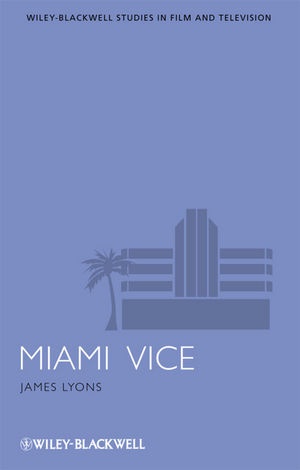Read more
Miami Vice captures the glitter and glamour embodied by Crockett and Tubbs and offers students an anatomy of a ground-breaking work in the police procedural genre.
* Explores Miami Vice's combination of disparate influences (MTV, film noir, soap opera, 'high concept' action films) as well as the social, cultural and industrial moments when it burst onto the network
* Introduces readers to major components of televisual analysis--style, storytelling, the television show as commodity and ideological critique-- that illustrate the show's unique features
* Provides a model for students' own assessment of other shows, and confirms precisely how--and on what terms--Miami Vice redefined the police drama and an era
List of contents
Acknowledgments. Introduction.
1. I Want My MTV Cops: Miami Vice as Television Commodity.
2. Guns, Glitter, and Glamour: Styling the Show.
3. Losing the Plot?: Storytelling in Miami Vice.
4. Risky Business: the Cultural Politics of Vice.
Afterword.
Broadcast Date Notes.
Notes.
Bibliography.
Index.
About the author
James Lyons is Senior Lecturer in Film Studies at the University of Exeter. His publications include
Quality Popular Television (2003),
Selling Seattle: Representing Contemporary Urban America (2004), and
Multimedia Histories: From the Magic Lantern to the Internet (2007).
Summary
Miami Vice captures the glitter and glamour embodied by Crockett and Tubbs by offering an anatomy of a ground-breaking work in the police procedural genre. The volume explores Vice's combination of disparate influences (MTV, film noir, soap opera, action films) as well as the social and cultural moments when it burst onto the network.
Report
"All in all, the careful, detailed analysis of the various contextsof network television turns this study into a useful handbookespecially for film students who can use it as blueprint foranalysing other series." (European Journal of American Studies,2011)
"[Lyons] displays, in addition to still other virtues, anattentiveness to visual texture and theme as refined as that in thebest film criticism. This book offers the richest account of asingle television program I ve ever read, describing a definingshow of the Reagan years...Lyons s treatment of the series conflicted ideology is equally illuminating." (Cinema Journal, 1June 2011)

